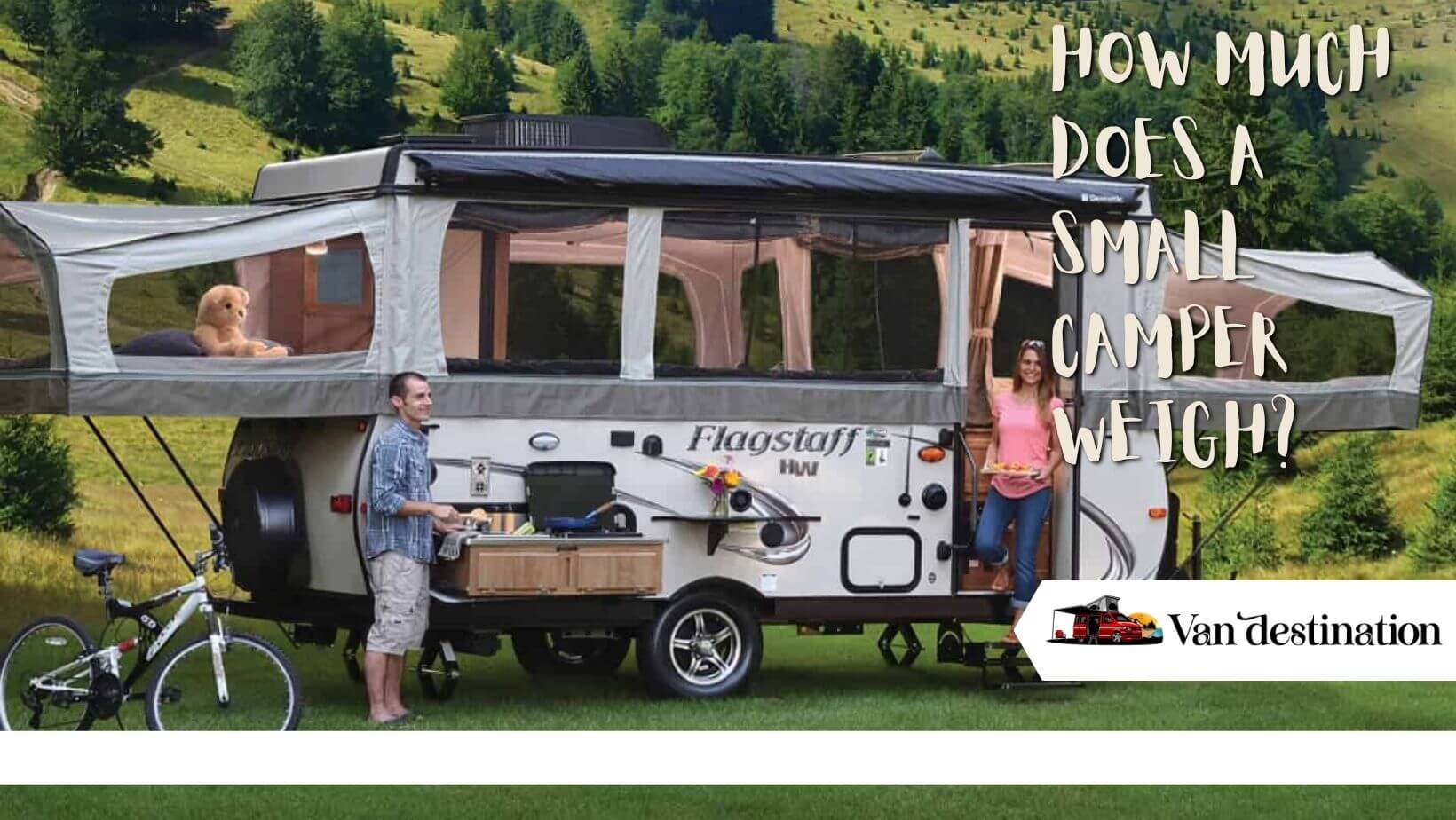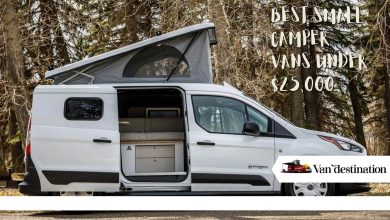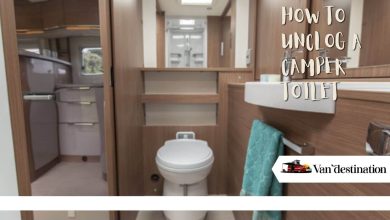How Much Does a Small Camper Weigh?

If you’re in the market for a small camper or already own one, you might be wondering about its weight, especially if you have a smaller tow vehicle. The weight of a small camper can vary significantly, depending on its size, type, and equipment. In this guide, we’ll explore the factors influencing the weight of small campers, provide a general weight range, and discuss why understanding your camper’s weight is crucial.
Understanding the Weight Range
In short, a small camper typically weighs around 500 to 3000 pounds (226 to 1360 kilograms) when its tanks are empty. This weight range accommodates various sizes and types of campers. However, keep in mind that additional gear or water can add another 500 to 1000 pounds to the overall weight.
The average weight of teardrop campers, a popular choice for outdoor enthusiasts, falls within the range of 500 to 3200 pounds, with most teardrop campers weighing around 1000 pounds.
For larger campers exceeding 3000 pounds, they are often considered “heavy campers” and are equipped with additional amenities, making them double-deckers.
Notable Small Campers and Their Weights
To give you a better idea, here are some common small camper models and their dry weights:
- Rubicon 1200RK (Coleman): 1,682 lbs.
- Lantern LT 17R (Coleman): 2,970 lbs.
- Passport SL 189RB (Keystone): 4,883 lbs.
- Sea Breeze 16RB (Genesis): 3,476 lbs.
- Pioneer RL250 (Heartland): 6,134 lbs.
- Autumn Ridge 172FB (Starcraft): 3,075 lbs.
Why Knowing the Weight is Essential
Understanding the weight of your camper is crucial for several reasons:
- Towing Capacity: Knowing your vehicle’s towing capacity ensures it can safely tow the camper without strain or risk of damage.
- Fuel Efficiency: Heavier trailers consume more fuel, impacting your overall travel expenses. Being aware of your camper’s weight helps optimize fuel efficiency.
- Safety: The weight of the trailer affects stopping distance, especially in emergencies or adverse weather conditions. Exceeding your vehicle’s towing capacity can compromise safety.
Gross Weight vs. Dry Weight
Understanding the terms gross weight and dry weight is vital when assessing a camper’s weight.
- Gross Weight (GTW): The total weight of the camper when fully loaded with gear. It includes the camper’s weight and all belongings.
- Dry Weight: The camper’s weight without any gear or belongings. It represents the baseline weight when the camper leaves the factory.
Gross Vehicle Weight Rating (GVWR)
The GVWR is the maximum weight a vehicle can safely tow, including the weight of the vehicle, camper, and belongings. Exceeding the GVWR poses safety risks and potential damage to your tow vehicle.
Unloaded Vehicle Weight (UVW)
The UVW, or dry weight, is the camper’s weight without any gear or belongings. Knowing the UVW provides a baseline for understanding how much weight you can add.
Cargo Carrying Capacity
The cargo carrying capacity indicates how much weight the trailer can safely carry, including the camper’s weight and belongings. Exceeding this capacity can lead to damage and safety issues.
In conclusion, when venturing into the world of small campers, understanding their weight is paramount. It ensures your safety, optimal vehicle performance, and a more enjoyable travel experience. So, before embarking on your next adventure, familiarize yourself with your camper’s weight specifications.
Get ready for your next journey with a camper that suits your needs!
Note: For more detailed information on specific models or additional insights, consult your camper’s manual or reach out to the manufacturer.
Read More: How Much is a Camper Van? 5 Affordable Camper Vans That Are Cool



